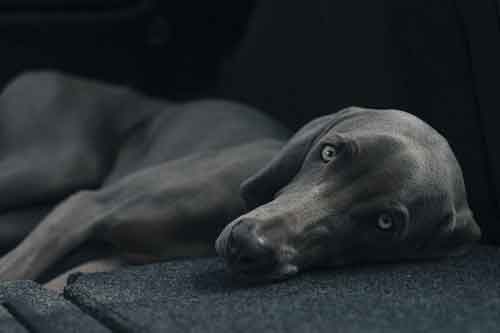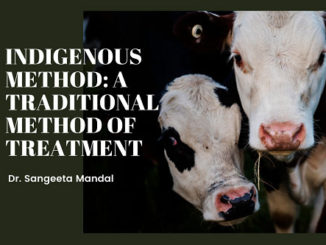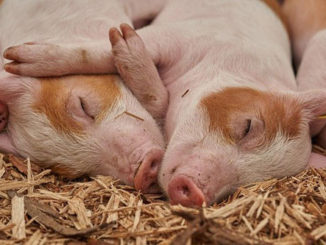A 5 week old Spitz pup suffering from diarrhea and vomiting was presented at Veterinary Hospital, Chaumuha, Mathura. Animal was dull, depressed and anorectic. It preferred to lay down in sternal recumbency. Animal was neither vaccinated nor dewormed. Diarrhea and vomiting occurred at examination table. Faeces contained blood and were profuse, watery and foul smelling. Vomitus was frothy and greenish coloured. Respiration rate was 27/minute, heart rate 68/minute and rectal .°temperature 98.6 F. Mucous membrane slightly congestedAbdominal palpation revealed fluid–filled intestinal tract. Fecal sample was negative for parasitic examination. Hematology revealed low RBC count (5.5 mcm), Hb (8.2 g/dl) and WBC (4000/µl) count suggesting virus infection.

Diagnosis
Based on history of no vaccination, clinical signs and laboratory diagnosis, animal was diagnosed as suffering from parvovirus infection.
Therapeutic Management
Pup was treated with cefotaxime @ 30 mg/kg (Taxim@ 125 mg/ vial) intravenously twice a day. Antibiotic was used to prevent secondary bacterial infection. Meloxicam@0.3mg/kg (Melonex@ 5mg/ml, 2ml ampoule), 0.2 ml was used intravenously twice in day in order to provide analgesia and anti inflammatory response. Dextrose normal saline (DNS@200 ml) and Ringer’s lactate (RL@150 ml) was given intravenously along with multivitamin preparation (Tribivet) to prevent dehydration and electrolyte imbalance and weakness. Antiemetic ondansetron@0.2 mg/kg (Emeset@ Injection, 2 mg/ml, 2ml ampule) was given slowly intravenously once. Animal showed marked improvement 3 days after treatment. Antibiotic and meloxicam was discontinued after 4th day but fluid, electrolyte and mulivitamin therapy was continued for 8th day till animal started eating and drinking normally. Multivitamin syrup was kept continue even after recovery. In between deworming was done with pyrantel pamoate@10mg/kg (Susp. Nemocid@ 50mg/ml) was given orally.
Advice to owner
Owner was advised to repeat deworming after 21 days and vaccinate pup when healthy. Pups are more susceptible to parvo virus infection than adults because of low immunity and rapidly multiplying enterocytes and myocytes which are predilection sites for parvo viral replication . Diagnosis is usually based on history of non vaccination against parvovirus, typical clinical signs of disease as bloody diarrohea and frothy vomiting besides absence of parasitic eggs or oocysts in faeces on laboratory examination.. Symptomatic treatment is mostly being practiced to minimize loss or prevent complications as anti viral drugs are either costly or full of harmful side effects but recent therapeutical trials are also being practised . Infection can best be controlled from spreading by maintaining proper hygiene and vaccinating pups regularly.
| The content of the articles are accurate and true to the best of the author’s knowledge. It is not meant to substitute for diagnosis, prognosis, treatment, prescription, or formal and individualized advice from a veterinary medical professional. Animals exhibiting signs and symptoms of distress should be seen by a veterinarian immediately. |






Be the first to comment